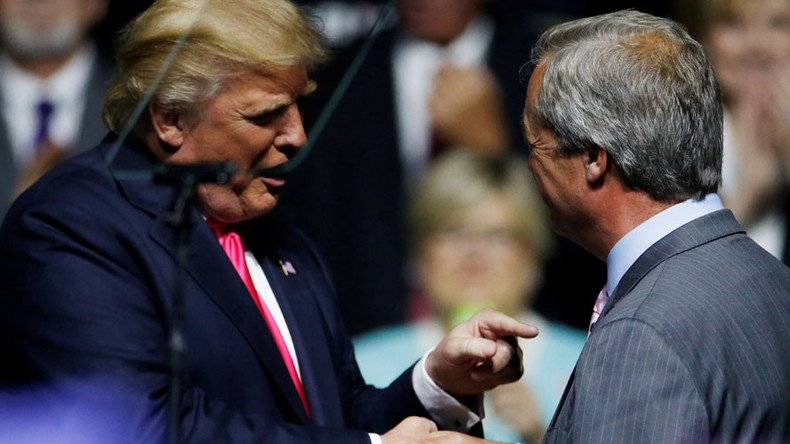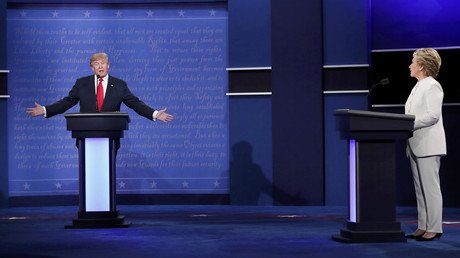‘Post-truth’ is Oxford Dictionaries’ word of the year, thanks to Brexit & Trump coverage

Oxford Dictionaries has named ‘post-truth’ its international word of the year, thanks to the term’s usage throughout the Brexit referendum and Donald Trump’s presidential campaign.
‘Post-truth’ is an adjective used to describe how objective facts are often less influential in shaping public opinion than appeals to emotion and personal belief.
One of the most infamous examples came from former Justice Secretary Michael Gove, who was accused of importing Trump’s brand of ‘post-truth politics’ to the EU referendum campaign.
He had stuck by the Leave Campaign’s widely discredited claim that Britain sends £350 million (US$430 million) to the EU, and refused to name any economists who backed Brexit, saying “people in this country have had enough of experts.”
Editors say use of the term ‘post-truth’ increased by around 2,000 percent in 2016 compared to last year. It put the rise down to the EU referendum in the United Kingdom and the presidential election in the United States.
The dictionary’s word of the year is intended to “reflect the passing year in language.”
Last year, editors controversially chose the ‘face with tears of joy’ emoji. It said the pictograph best represented “the ethos, mood and preoccupations of 2015.”
Post-truth is our Word of the Year - but which words made the shortlist? Hygge, coulrophobia, and more: https://t.co/4L6ZTwtEFX#OxfordWOTYpic.twitter.com/tUmHLeRIlw
— Oxford Dictionaries (@OxfordWords) November 16, 2016
Contenders for this year’s title included the noun ‘alt-right’, shortened from ‘alternative right’, which is defined as an “ideological grouping associated with extreme conservative or reactionary viewpoints, characterized by a rejection of mainstream politics and by the use of online media to disseminate deliberately controversial content.”
Brexiteer was also in the running, along with non-political terms including ‘coulrophobia’, which is the fear of clowns, and ‘hygge’, the Danish concept of coziness.
The noun ‘adulting’ – the practice of behaving in a way characteristic of a responsible adult, particularly the accomplishment of mundane but necessary tasks – also made the list. So did ‘chatbot’, a computer program designed to simulate conversation with human users, especially over the internet.
Oxford Dictionaries’ Casper Grathwohl told the BBC ‘post-truth’ could become “one of the defining words of our time.”
“Fueled by the rise of social media as a news source and a growing distrust of facts offered up by the establishment, post-truth as a concept has been finding its linguistic footing for some time,” he said.
“We first saw the frequency really spike in June with buzz over the Brexit vote and again in July when Donald Trump secured the Republican presidential nomination.
“Given that usage of the term hasn’t shown any signs of slowing down, I wouldn’t be surprised if post-truth becomes one of the defining words of our time.”
According to Oxford Dictionaries, ‘post-truth’ was first used in a 1992 essay by the late Serbian-American playwright Steve Tesich in Nation magazine. Tesich, writing about the Iran-Contra scandal and the Persian Gulf war, said: “We, as a free people, have freely decided that we want to live in some post-truth world.”
‘Post-truth’ has now been included in OxfordDictionaries.com. Editors will monitor its future usage to see if it will be included in future editions of the Oxford English Dictionary.














